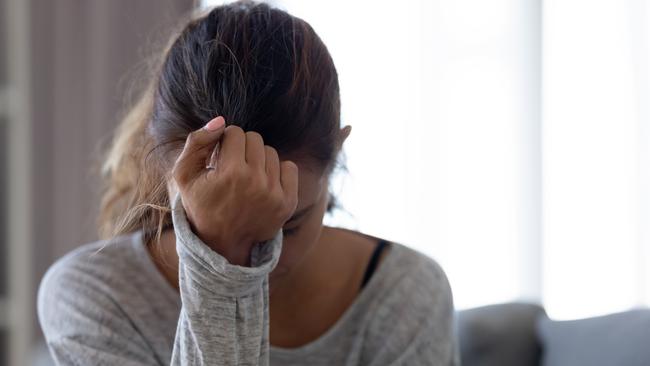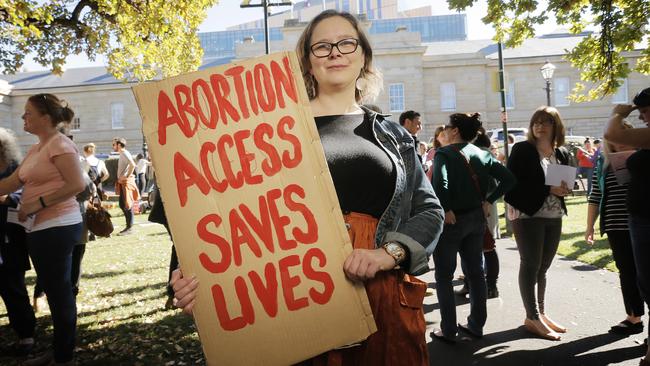Senate inquiry into universal access to reproductive health details abortion reality
Healthcare experts have detailed the reality of how Australia’s abortions laws are accessed by those needing the service.
Health
Don't miss out on the headlines from Health. Followed categories will be added to My News.
The reality of Australians’ access to abortion services has been laid bare in an inquiry into the matter.
A senate hearing into universal access to reproductive healthcare was held in Perth on Tuesday.
The inquiry is the first of its kind by an Australian government and aims to bring the country in line with overseas counterparts that have strong national, legal frameworks on abortion.
Dr Samara McNeil, chair of Violence Prevention Australia, said Australia’s current abortion laws are not flexible enough to serve the community.
“I think we need to increase to access abortion care as this would directly increase health and safety of people across Australia,” Dr McNeil said.

“I’ve seen countless patients struggle to afford the cost of an abortion service and all the associated travel and accommodation expenses. I believe that all costs associated with abortion care should be covered by Medicare, inclusive of the costs of having a support person.”
The cost of a pregnancy termination in Australia depends on several factors including the provider, whether it is medical or surgical, and gestation period.
Upfront costs can range from anywhere between $300 and more than $1000. Medicare rebates often can cover around 50 per cent of the overall costs.
Dr McNeil said more needed to be done to provide junior doctors and healthcare workers with more access to abortion training.
“The cost of providing abortion care are complex and require collaboration between the commonwealth health department and state and territories in order to maximise health funding available,” she said.
“I believe investment must be made into improving access to surgical abortion care, surgical abortion training at training sites.
“After 18 months at Western Australia’s tertiary centre, I’ve had minimal opportunities to develop my abortion skills in order to later service rural and remote communities.
“Education resources should be made available or compulsory to start working in healthcare such as values clarification workshops to reduce conscientious or unconscientious objectors causing barriers to care.”
A conscientious objection is the legal right of doctors or medical to refuse to perform or assist in performing abortion.
A 2020 study by the Australian and New Zealand Journal of Obstetrics and Gynaecology (ANZJOG) found that 13.7 per cent of respondents working in the medical field reported total opposition to abortion on religious or conscientious objection grounds
Hunter Gurevich from Transfolk of WA said transgender and gender diverse people are often faced with an additional set of challenges when accessing abortion care.
“(Transgender people) are often excluded from gynaecological care,” Mr Gurevich said.

“This exclusion can be explicit, such as when a healthcare provider refuses to provide reproductive health care to a transgender or gender diverse individual due to a lack of adequate education and training to active transphobia that can also be implicit, such as when healthcare material only represents cisgender women for a reproductive health check.
“Indeed, the terms of reference of this committee speaks to the National Women’s Health Strategy when it’s not only women who need access to this care.”
Mr Gurevich went on to say this lack of inclusion and access can lead to worsened health outcomes for transgender people and non-cisgender women who need an abortion.
“This risk of this exclusion (can result in) many trans people who may not engage with medical professionals regarding their reproductive or sexual health until urgent or complex care is needed,” he said.
“Prognosis may be much poorer in critical aspects for general health and mental health (as) a minority communities that have already suffered through much stigma and bigotry.”
The inquiry was initiated by the Greens in 2022 with the aim to look into a set of priorities set out by the National Women’s Health Strategy.
These included “universal access to sexual and reproductive health information, treatment and services that offer options to women to empower choice, and control in decision-making about their bodies”.
Larissa Waters, a senator from Queensland who raised the motion for an inquiry, said access to safe and legal abortion was often a “postcode lottery” in Australia.
“(There needs to be) a more cohesive approach to approaching reproductive health, including a focus on contraception, sexual health care and education, and unbiased counselling – necessities that are often inaccessible and unaffordable to vulnerable and minority communities,” Ms Waters said.
The inquiry will next meet on May 11.
Originally published as Senate inquiry into universal access to reproductive health details abortion reality


